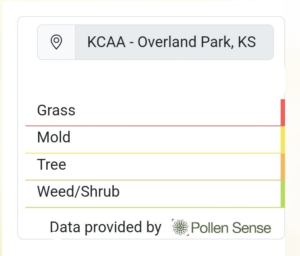SERVICES
The physicians and caregivers at KCAA are specially trained experts in the diagnosis and treatment of allergies and asthma. We are committed to staying on top of the latest research and treatments for our patients.
ALLERGIES
An allergy is an abnormal sensitivity to a substance which does not cause symptoms for most people. For those with allergies, the immune system creates an antibody which, in turn, creates symptoms. Common allergy symptoms include head congestion, runny nose, sneezing, and itchy eyes.
FOOD ALLERGIES =
These result from the immune system attacking specific food proteins. The most common food allergies are peanut, tree nut, milk, egg, wheat, soy, fish, and shellfish.
HAY FEVER/NASAL CONDITIONS =
This includes nasal congestion and snoring. Non-allergic rhinitis, a reactive or sensitive nose, is a common nasal condition.
INSECT STINGS =
Everyone experiences stings. But some people have a severe systemic reaction. This can result in hives, swelling, tightness in chest, and difficulty breathing.
SKIN ALLERGIES =
These occur when an allergen triggers a skin reaction. Skin allergies can cause eczema, hives, swelling, and rashes.
DRUG ALLERGIES =
Anyone could have an adverse reaction to medication. Some people have true drug allergies. Symptoms include rashes, itching, and respiratory problems.
ASTHMA
Asthma is a chronic lung condition that inflames and narrows airways. It can cause shortness of breath, wheezing, coughing, and chest tightness. Asthma can be triggered by allergens, irritants like cigarette smoke, weather changes, exercise, and respiratory infections.
ASTHMA =
Asthma is a chronic lung disease with no known cure. Asthma typically starts in childhood, but it can affect people of any age.
LUNG CONDITIONS =
Many lung conditions are related to allergies and asthma. These include exercise-induced asthma, cough, and vocal cord dysfunction, which can masquerade as asthma.
OTHER CONDITIONS
Other conditions treated by KCAA specialists include:
SINUSITIS =
This is an inflammation of the sinuses that can cause thick nasal discharge, congestion, postnasal drip, cough, and headache. Sinusitis often occurs after a cold.

